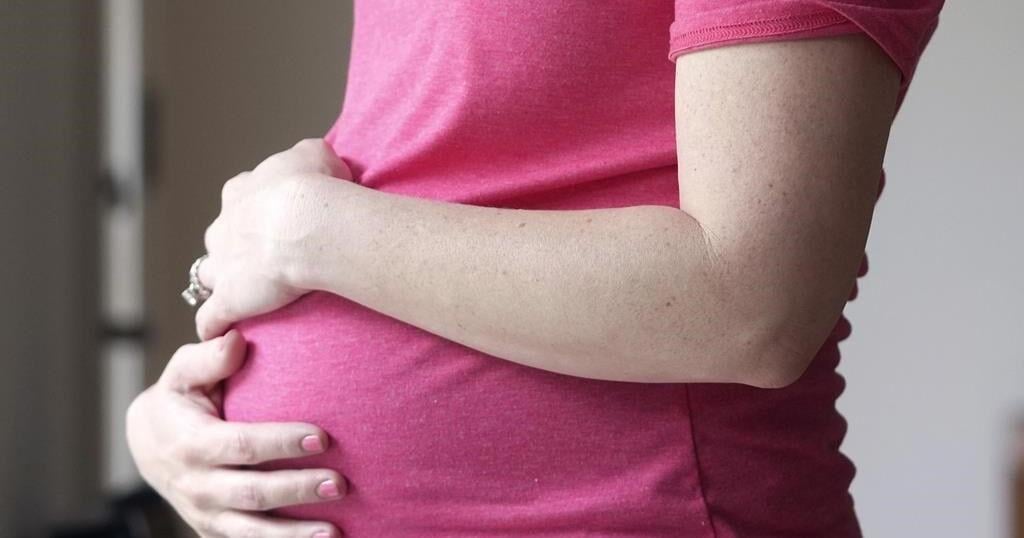Rana Van Tuyl was about 12 weeks pregnant when she got devastating news at her ultrasound appointment in December 2020.
Her fetus’s heartbeat had stopped.
“We were both shattered,” says Van Tuyl, who lives in Nanaimo, B.C., with her partner. Her doctor said she could surgically or medically pass the pregnancy and she chose the medical option, a combination of two drugs taken at home.
“That was the last I heard from our maternity physician, with no further followup,” she says.
But complications followed. She bled for a month and required a surgical procedure to remove pregnancy tissue her body had retained.
Looking back, Van Tuyl says she wishes she had followup care and mental health support as the couple grieved.
Her story is not an anomaly. Miscarriages affect one in five pregnancies in Canada, yet there is often a disconnect between the medical view of early pregnancy loss as something that is easily managed and the reality of the patients’ own traumatizing experiences, according to a paper published Tuesday in the Canadian Medical Association Journal.
An accompanying editorial says it’s time to invest in early pregnancy assessment clinics that can provide proper care during and after a miscarriage, which can have devastating effects.
The editorial and a review of medical literature on early pregnancy loss say patients seeking help in emergency departments often receive “suboptimal” care. Non-critical miscarriage cases drop to the bottom of the triage list, resulting in longer wait times that make patients feel like they are “wasting” health-care providers’ time. Many of those patients are discharged without a followup plan, the editorial says.
But not all miscarriages need to be treated in the emergency room, says Dr. Modupe Tunde-Byass, one of the authors of the literature review and an obstetrician/gynecologist at Toronto’s North York General Hospital.
She says patients should be referred to early pregnancy assessment clinics, which provide compassionate care that accounts for the psychological impact of pregnancy loss – including grief, guilt, anxiety and post-traumatic stress.
But while North York General Hospital and a patchwork of other health-care providers in the country have clinics dedicated to miscarriage care, Tunde-Byass says that’s not widely adopted – and it should be.
She’s been thinking about this gap in the Canadian health-care system for a long time, ever since her medical training almost four decades ago in the United Kingdom, where she says early pregnancy assessment centres are common.
“One of the things that we did at North York was to have a clinic to provide care for our patients, and also to try to bridge that gap,” says Tunde-Byass.
Provincial agency Health Quality Ontario acknowledged in 2019 the need for these services in a list of ways to better manage early pregnancy complications and loss.
“Five years on, little if any progress has been made toward achieving this goal,” Dr. Catherine Varner, an emergency physician, wrote in the CMAJ editorial. “Early pregnancy assessment services remain a pipe dream for many, especially in rural Canada.”
The quality standard released in Ontario did, however, prompt a registered nurse to apply for funding to open an early pregnancy assessment clinic at St. Joseph’s Healthcare Hamilton in 2021.
Jessica Desjardins says that after taking patient referrals from the hospital’s emergency room, the team quickly realized that they would need a bigger space and more people to provide care. The clinic now operates five days a week.
“We’ve been often hearing from our patients that early pregnancy loss and experiencing early pregnancy complications is a really confusing, overwhelming, isolating time for them, and (it) often felt really difficult to know where to go for care and where to get comprehensive, well-rounded care,” she says.
At the Hamilton clinic, Desjardins says patients are brought into a quiet area to talk and make decisions with providers – “not only (from) a physical perspective, but also keeping in mind the psychosocial piece that comes along with loss and the grief that’s a piece of that.”
Ashley Hilliard says attending an early pregnancy assessment clinic at The Ottawa Hospital was the “best case scenario” after the worst case scenario.
In 2020, she was about eight weeks pregnant when her fetus died and she hemorrhaged after taking medication to pass the pregnancy at home.
Shortly after Hilliard was rushed to the emergency room, she was assigned an OB-GYN at an early pregnancy assessment clinic who directed and monitored her care, calling her with blood test results and sending her for ultrasounds when bleeding and cramping persisted.
“That was super helpful to have somebody to go through just that, somebody who does this all the time,” says Hilliard.
“It was really validating.”
This report by The Canadian Press was first published Oct. 15, 2024.
Canadian Press health coverage receives support through a partnership with the Canadian Medical Association. CP is solely responsible for this content.
